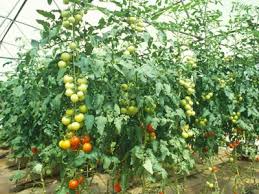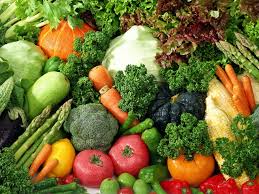
From The Chronicles Of A Kosher Caterer
Published Winter 2014
A Fictional Account of a Factual Situation1
Pictures: Large industrial stove, oven, fryer, elegantly set ballroom with tables
Mendy enjoyed his job at Elegant Touch Catering (ETC). His primary responsibilities were in the office, but his sharp eye was noticed by Rabbi Ephraim Rubin, the caterer’s veteran mashgiach, who needed extra help with vegetable checking. Finding people with the skill and acumen to determine acceptability of leafy greens, especially in the pressurized environment of a commercial kitchen, was a challenge for Rabbi Rubin and he was eager to recruit Mendy as an assistant.
After two months of training, and hours squinting in the harsh glow of a light box covered by microfiber mesh cloth, Mendy became adept at detecting tiny translucent thrips and aphids hiding in the folds and crevices of romaine, kale, broccoli, dill, and parsley. Finally, the STAR-K Kashrus Administrator overseeing foodservice establishments approved him as a vegetable checker. Eventually, Mendy […]

‘Beer Halacha’: Clarifying The Kashrus of Beer
Published Winter 2014
Hashem , in his ultimate kindness, has provided man with the keys to unlock some of nature’s most amazing secrets. For centuries, a great secret has been revealed to man – the bubbling elixir known as beer.
Beer’s ingredients – water, barley, yeast and hops – bear no resemblance to the finished product. These natural ingredients undergo a series of simple yet fascinating processes to convert them into one of the world’s most popular beverages. It is not coincidental that alcoholic beverages have been given the distinctive appellation “spirits”, alluding to the fact that these beverages seem to magically emerge from these natural ingredients as if they have been assisted by spirits. The four steps of beer making are malting, roasting, brewing and fermenting.
THE PROCESS : The first step of beer making combined barley and water in a process […]

Bishul Yisroel Sephardi: And Now For The Rest Of The Story
Published Spring 2014
If anyone ever visited New Orleans, one of the must-see tourist highlights in Metairie, a suburb of New Orleans, is a quaint Cajun wooden floor coffee shop known simply as Morning Call. Morning Call is a café that sold one product only – a delightful, deep fried square doughnut that you smothered with heaps of confectioners’ sugar and enjoyed along with a delicious hot cup of French market coffee. These square doughnuts are known as beignets (pronounced ben y’ays). I don’t know if a beignet matches a fresh jelly-filled sufgania , but beignets are a New Orleans favorite and Morning Call is still frying beignets.When I was a member of the New Orleans Kollel many years ago, Morning Call was certified kosher by the local congregational rabbi, and at that time there was no Kosher Cajun restaurant to go to for a kosher bite to eat. The proprietor of Kosher Cajun was […]

A Halachic Guide to Seudas Shabbos and Lechem Mishna
Summer 2014 | Updated August 2024
One of the highlights of the week is the Shabbos seuda. The divrei Torah, zemiros, Shabbos delicacies, family and guests allow us to come closer to the Ribbono Shel Olam and recharge our ruchniyus and gashmiyus (spiritual and physical) batteries. Although a delicious bowl of chicken soup on Friday night and hot cholent during the daytime seuda enhance the Shabbos meals, one does not fulfill his obligation of Seudas Shabbos with either of these items. What is necessary to fulfill one’s obligation for Seudas Shabbos?
I. Seudas Shabbos
Men and women are obligated to eat three meals every Shabbos. Each “meal” must consist of bread.1 Chinuch-age children are also obligated. On Yom Tov, one2 is obligated to eat only two seudos as there is no obligation for a third meal.
Ideally, one should eat the volume of a k’beitza v’yoser[...] Read More

Zman Cheiruseinu
Published Summer 2014
There was a story told about a very elderly Yid who was in the hospital with medical complications. The doctor came in with the patient’s test results and said, “Mr. Goldberg, your blood pressure is high and your cholesterol is high. You must change your diet. No more chopped liver; nothing cooked in chicken schmaltz.” Mr. Goldberg peeked out from under his blanket as his children were attending him, looked the doctor straight in the eye and said, “Vos vais a doctor vos a yid darf essen!”1
Although Judaism frowns upon a ‘Live to Eat’ mantra, eating does play a central role in the life of a Torah observant Jew. How can one observe Shabbos without Kiddush and Hamotzi? Who can observe a Pesach seder without matza? A Melava Malka, a Purim seuda, dipping an apple in the honey on Rosh Hashana – our calendar and our chagim […]

Taam Tov Btuv Taam: A Flavorful Blend of Kashrus and Spices
Published Fall 2014
Unquestionably, the one area of food ingredients that attests to the global nature of the food industry is the spice trade. The Torah is replete with reference to the spice traders who carriedYosef to Egypt to the ketores, that was fundamental to the avoda in the Bais Hamikdash. The spice commerce has thrived from the beginning of commercial trade. New World exploration forged forward fueled with the hope of finding shorter spice routes to the Far East. Centuries earlier, Marco Polo witnessed flourishing spice trade first hand, during his travels to the Orient. Spice empires thrived as the European powers deepened their trade with the Far East. Today, spice trading continues to prosper. Spices hail from Albania to Zanzibar and arrive to these shores in many different forms as whole spices, spice extracts, oleoresins and essential oils. What are the kashrus issues facing this fascinating ancient/contemporary industry? Have modern processing techniques simplified or complicated matters?
What are spices? Are spices and herbs synonymous?
The term spice is […]

Shmitta 5775
Published Fall 2014
For over nineteen hundred years, the Jewish people have longed to return to Eretz Yisroel, the Land of Israel. It is only in the Land of Israel that we can realize our full potential as a nation; it is only in the Land of Israel that the Torah’s blueprint for life can be completely fulfilled. For the millennia, the most important dimension of this longing was the yearning to once again be able to fulfill the mitzvos hatluyos ba’aretz (agricultural laws), the commandments that can be observed only in the Land of Israel. With Hashem’s help, many of us in this past generation have realized part of this two thousand year old dream. Yet, this realization has presented us with new challenges.
Without a doubt, one of the greatest mitzva challenges of all times is the fulfillment of the mitzva of Shmitta, the year of Sabbatical rest for the land of Israel. The Midrash perceives this multifaceted mitzva as being so challenging and difficult that he who meets […]

Inspections In All Directions
Published Winter 2015
The STAR-K certifies tens of thousands of products manufactured across the globe. There are well over a million ingredients and products certified by hundreds of kashrus agencies worldwide. The following example may provide an idea of how many products are kosher certified.One million different products that are in containers measuring 6 inches in diameter lined up side by side (with no space between them) would stretch from Manhattan to Philadelphia. Since there are considerably more than a million kosher certified products, and industrial products are often sold in wider containers (e.g., 55 gallon drums), this line of products would most likely continue all the way to Baltimore. Furthermore, every kosher certified item (i.e., every container of every kosher product certified by every reliable kashrus agency) would easily stretch from the earth to the moon.To certify all of these products, kashrus agencies must adequately communicate with companies and mashgichim […]

Laws of Biur Ma’aser
Published Spring 2015 | Updated Spring 2022
The Land of Israel follows a unique seven-year cycle. For the first six years, fruits and vegetables grown there are tithed.1 The seventh year is Shemita, the sabbatical year, which has its own set of special laws. These laws mainly affect those living in Israel, but also those living in the Diaspora if they are in possession of Israeli-grown produce.2
For the tithing of the first six years, the Torah 3 sets an end date for the process called Biur Ma’aser. Biur Ma’aser includes a number of components, which are still applicable today:
Biur Ma’aser
Any untithed produce (tevel) in one’s possession must be tithed by Erev Pesach 4 of the fourth and seventh years of the Shemita cycle.5
Ma’aser Sheini is the second tithe separated on produce harvested in the 1st, 2nd, 4th, and 5th […]

Grillin’ With a ‘Bren’
Published Spring 2015
One of Moshe Rabbeinu ’s first directives from the Ribono Shel Olam was that the Korban Pesach had to be tzli aish , no compromise – not boiled, not cooked, not raw – but grilled on the open flame. This was B’nei Yisroel ’s honest to goodness first barbecue! “ Maase Avos Siman L’Vanim .” Grilling has taken on a life of its own. As the weather warms, and once again we are ready to enjoy the outdoors there are many dos and don’ts that the savvy kosher griller should keep in mind before throwing that delicious rib steak onto the coals.
Kashering a Non-Kosher Grill
As unlikely as it sounds, there are times when the occasion arises where a non-kosher grill requires kosherization. This method is impractical for a barbecue pit in the park. However, in the event that one needs to kasher a non-kosher grill, below are the steps […]

Three Mentchen Ready for Bentchen
Published Summer 2015
The scene is ever so common in Jewish homes. A delicious meal is served and followed by mayim achronim . Then one of the participants of the mezuman proclaims, “ Rabosai mir vellin bentchen ”[1] (Gentlemen, let us recite Birchas Hamazon ), and everyone present responds.[2]
The basic halachos are well known. If three men who have reached the age of Bar Mitzvah [3]eat bread[4] together, they form a “ mezuman. ”[5] One of them, known as the “ mezamein ” is the leader.[6] If there are ten men, “ Elokeinu ” is added[7] by the mezamein between the words “ Nevoraych ” and “ She’ochalnu ”, and by the rest of the group between “ Baruch ” and “ She’achalnu ”.
The Mishna at the beginning of the seventh perek of Brochos [...] Read More

Pre-Purchase Advice – for Ovens and Cooktops
Visit the STAR-K website at www.star-k.org for lists of oven products under STAR-K certification.

Countertop Pre-Purchase Advice
Granite, Marble, or Stainless Steel – To kasher (for year-round and Pesach), clean the countertop, wait 24 hours after its last use, and then pour boiling water over each part of the countertop. You may need to refill the pot several times. (It is not sufficient to pour on one spot and let the water run over the counter.) Make sure the material is a pure granite or stone. Sometimes they are really “composites” and therefore CANNOT be kashered.
Wood may also be kashered as stainless steel if it has a smooth surface and no cracks.
Porcelain Enamel, Dupont Corian® Solid Surface and Corian® Quartz Surface (formerly called Zodiaq®), Formica, Silestone – Star-K policy does not allow kashering of plastic or materials with plastic components.
Year-Round Use: As long as the countertop is clean, it may be used for cold pots and food. Hot food should not be placed on it. If inadvertently hot food was put […]

Rabbi Dr. Moshe Tendler Revisits the Question of Kosher Veal
Click here to visit the entire article and pictures: http://baltimorejewishlife.com/news/news-detail.php?SECTION_ID=1&ARTICLE_ID=59168
Baltimore, MD – April 23, 2015 – It is well known that when the Posek Hador, Rav Moshe Feinstein, Zatza”l, wrote his famous Teshuva inIgros Moshe Even HaEzer IV 92, in 1982, which placed severe restrictions on the production and purchase of Kosher white veal to the point that those who followed his Psak stopped eating Veal, his son-in-law, Rabbi Dr. Moshe D. Tendler, Shlit”a, a Rosh Yeshiva in Yeshivas Rabbeinu Yitzchak Elchonon, Rov in Monsey and biology professor at Yeshiva University, was Rav Moshe’s “right hand” in this psak. Rabbi Dr. Tendler in addition to his vast knowledge of Halacha and Science, had significant practical experience in Shechita including having headed the Shechita department of the Orthodox Union for a time.
Since then, Rav Tendler, Shlit”a, and many of his and Rav Moshe’s Talmidim, have abstained from eating veal due to […]

What it Took for STAR-K to Certify the GA Under Secret Service Surveillance
http://baltimorejewishlife.com/news/news-detail.php?SECTION_ID=1&ARTICLE_ID=54403
[By: Margie Pensak]
Security was tight at STAR-K Certification’s largest and most challenging food service supervision, to date–The Jewish Federations of North America’s 2014 General Assembly (GA), the premier annual North American Jewish communal event, held at the Gaylord National Resort & Convention Center, in National Harbor, Maryland, November 9-12. Vice President Joe Biden was one of the several scheduled speakers and I had to make sure I arrived early enough before Gaylord’s security lockdown. I never did get to see the Vice President, while I was touring the kosher kitchen with STAR-K Assistant Director of Supervision Rabbi Mayer Kurcfeld, who spearheaded the kashrus team for this event. But, I did feel the thrill of the anticipation of his arrival, as I went through more than one security checkpoint and watched a sniffing K-9 attack trained German shepherd police dog check out the crowd!
The Gaylord National Resort & Convention […]

STAR-K Summer 5785/2025 Kashrus Training Seminars
BOTH THE FOODSERVICE MASHGIACH AND KASHRUS TRAINING CLASSES ARE NOW FULL.
APPLICATIONS FOR OUR WAITLIST ARE STILL BEING ACCEPTED.
12th Annual Foodservice Mashgiach Training Seminar
July 21-23, 2025 | כ”ה תמוז – כ”ז תמוז
Foodservice Mashgiach Training Application Form
22nd Annual Kashrus Training Program
July 28-31, 2025 | ג’ אב – ו’ אב
Kashrus Training Program Application Form
Both programs will be held at STAR-K’s Baltimore corporate headquarters.
Each program is limited to 25 attendees.
Kashrus Training Program
This widely acclaimed four-day program provides rabbonim, certifying agency administrators, kollel members, and others serving in klei kodesh, the opportunity to meet the personalities behind the internationally recognized and trusted STAR-K symbol. Attendees will be provided with a hands-on, practical application of the Shulchan Aruch, and learn how to structure a kashrus organization, along with the ins and outs […]

Heimishe Kosher Visits STAR-K
STAR-K Kosher Certification recently held its first Winter Kashrus Training Program for a group of mashgichim from New York. The participants, who live in Boro Park, traveled to attend the seminar in Baltimore on three consecutive Sundays, January-February. The program was the brainchild of Mr. Meir Rand, a Chasidishe mashgiach who has worked in various kitchen venues in Boro Park. Realizing the lack of Chasidishe mashgiach training, he approached STAR-K Kashrus Administrator Rabbi Zvi Holland with his well-accepted idea of a training program.
“I was very, very happy with the program; I learned such new chidushim and how to deal with people in Kashrus work,” says Mr. Rand. “I have no words. It was mamash amazing–meyradik!
“The Chasidishe community doesn’t yet have such a training program for their mashgichim,” continues Mr. Rand. “We have no mesuderdik system for training them and we found out that STAR-K has the best training system […]

When You Need to Knead: A Guide to Hafrashas Challah
Fall 2004 | Updated May 2025
[For a related article about the halachos of hafrashas challah for gluten-free blends, whole wheat flour, sourdough and at challah bakes, click here.]
One of the many ways Klal Yisroel serves the Ribbono Shel Olam is through the performance of mitzvos hateluyos ba’aretz, mitzvos that are dependent on the Land of Israel. Those who live in Israel have many opportunities to fulfill these mitzvos. In chutz la’aretz, the mitzvah of hafrashas challah is one of the only agricultural mitzvos that we are obligated to perform.1
It is well known that this is one of the mitzvos performed preferentially by women. Furthermore, one honors the Shabbos by baking and being mafrish challah on Erev Shabbos.2
The following are halachic guidelines based on the psak of Rabbi Moshe Heinemann shlit”a.3
A. Products
Products kneaded from chameishes minei dagan (wheat, spelt, barley, oats, and rye) are obligated […]

HOT OFF THE HOTLINE: Kosher is Healthier
“Do you really know what Kosher means?”
“I think so.”
“Fine, so tell me, what is Kosher?”
“Kosher means that the food is clean and healthy.”
“No, Kosher means that the food production was blessed by a Rabbi.”

A Crystal-Clear Halachic Approach to Glass
Glass is one of nature’s most versatile products created from some of nature’s most prevalent raw materials: sand, soda and lime. In the food industry glass applications are extremely diverse. Glass can be made into delicate drinking glasses as well as tough heat resistant ceramic cook tops withstanding temperatures over 1000°F.

The Kashrus of Tea – With No Strings Attached!
Published Summer 2013
Americans, generally, do not drink as much tea as the rest of world. This may have something to do with a certain party they had in Boston a while back. That being the case, you might be surprised to learn that tea is second only to water in worldwide beverage consumption. In fact, some estimates place tea consumption in the billions of cups daily. That’s a lot of tea. However, with recent health benefits being ascribed to tea, its popularity in this country is definitely on the rise. In this article we will explore the world of tea and what questions there are vis-à-vis kashrus and halacha. First, a little background is in order.

Knowing Your Beans: The Kashrus of Coffee
Bedouins savor it thick and rich out of small ornate cups. Some like it black, while others must have cream and sugar. The adventurous will try one of the many flavored coffees available, while the purist would not hear of it. No matter how you enjoy it, coffee remains one of the most popular beverages on the planet. The per capita consumption of coffee in the U.S. alone approaches 30 gallons a year.

Kashrus in High Spirits
Winter 2005
Jewish life-cycle events, be it a bris, a bar mitzvah, or a wedding, are special occasions that we anticipate eagerly and celebrate with joy. At any simcha, we fill our cups with wine, raise our glasses of schnapps, and with great fervor pronounce a resounding “L’chaim!” in honor of the blessed event. This custom of melding alcohol with simcha has been a Jewish practice from time immemorial. The cup that is raised today, however, bears very little resemblance to that of yesteryear.

The Art of Kosher Wine Making
In the Torah’s eye, nature’s quintessential beverage is “the fruit of the vine,” grape wine. Our Sages tell us of wine’s importance throughout the calendar year and throughout the Jewish life cycle. The Jewish People sanctifies Shabbos or Yom Tov over wine. At the Pesach Seder we express the four expressions of Geulah (freedom) over wine. One recites Sheva Brachos at a wedding over wine. A special Bracha was established by our Sages especially for wine, “Borei Pri HaGafen “ .

Facts on Wax: Are Vegetables and Fruit Waxes Kosher?
August 2013 | Updated May 2024
You may notice at your favorite supermarket the following statement next to the prominent “Summer Fruits from California” banner: “Coated with food grade vegetable, petroleum, and/or shellac-based wax or resin to maintain freshness” on their favorite fruits and vegetables. What are waxes? Are there any kashrus concerns? Let us examine some of the kosher facts on wax.
Waxes are not a new phenomenon, as they have been used domestically for over sixty years on a wide variety of fruits and vegetables (see list below). Waxes are derived from a variety of sources and are a cross combination of natural and synthetic ingredients. The most common primary wax ingredients are shellac, carnauba wax or petroleum-based wax. Less frequently used and more costly wax bases include beeswax and candelilla wax.
Shellac (Lac Resin)
Shellac or lac resin is a product that is imported from India and used in waxes for citrus […]

Hydroponics
The AeroGarden is a unique hydroponic system, enabling home-growing of vegetables. ( Note: STAR-K no longer certifies The Aerogarden) The entrance of this system into the marketplace presents an opportunity to discuss the history and halachos of hydroponics.

All Washed Up
In the health conscious world of the new millennium, healthful fine dining and garden fresh vegetables have taken an honorable position of prominence. Salad bars are in vogue. A colorful salad helps dress up the bland dinner plate. Fresh vegetables are healthy and wholesome. Unfortunately, it also causes havoc with the G-d fearing housewife, or the caterer’s mashgiach, who want to make sure that the vegetables served are not only clean and fresh, but insect-free, as well. Oftentimes, this task is tedious, time consuming, and frustrating. This is particularly true when dealing with large quantities of exotic, leafy vegetables that have to be inspected in a relatively short amount of time. What is the answer?

The Spice of Life: A Kashrus Overview of Salt & Pepper
The use of spices in preparing food has played a role in history disproportionate to their nutritional value. A ransom paid by Alaric the Goth that included three thousand pounds of pepper delayed the attack of Rome for two years. The discovery of the New World was due, in great measure to the search for such spices; that was the main objective of the early trans-Atlantic explorers. Our Rabbis tell us1 that the Torah is compared to salt and the Mishna to pepper. Indeed, the kashrus issues related to salt and pepper give us sufficient reason to analyze these primary food ingredients.

Olive Oil: The Contemporary Industry of Antiquity
Olive oil, the liquid gold of the ancients was touted for its nutritional, medicinal, and cosmetic value. As a fuel it illuminated the home. As a food ingredient it was a feast to the palate. Olive oil production is one of the world’s oldest industries. Interestingly, much of this ancient industry has not changed over the millennia.

Industrial Eggs: Not As Simple As it May Seem
The talmudic paradigm for a concept that is blatantly obvious is Keveiasa Bechuscha, the issue is as clear as the permissibility of mixing eggs into dairy products. However, things are not always as simple as they may seem, and just as the Ba’alei HoTosfos in Maseches Eiruvin discuss how less than “obvious” this concept may be, the production and use of eggs in modern food production pose questions whose answers are far from being considered obvious. The purpose of this article is to discuss some of the issues that confront modern kashrus supervision as they relate to egg production.

 STAR-D
STAR-D STAR-S
STAR-S